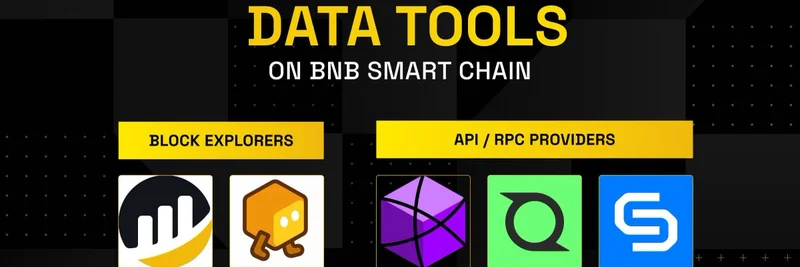The token at address 0x68f300c9eb5e33c2b856d8dd1c8580ac16118924 on the BNB Chain is labeled as “Penguins,” but it is distinct from the official Pudgy Penguins ecosystem token known as PENGU. When reviewed on decentralized venues like PancakeSwap, this BNB token is explicitly flagged with a “High Risk” warning—an immediate signal to slow down, verify, and proceed only if you fully understand the risks.
Before you interact with any token using “Penguin” branding, it’s vital to understand the difference between the official PENGU and other similarly named assets.
What is the official PENGU token?
- Token symbol: PENGU
- Primary blockchain: Solana
- Official Solana contract address: 2zMMhcVQEXDtdE6vsFS7S7D5oUodfJHE8vd1gnBouauv
- Origin: Part of the Pudgy Penguins ecosystem, which began as an NFT collection on Ethereum and has grown into a global brand.
- Utility: Aims to power community engagement across retail, content, gaming, and social initiatives. Partnerships have included use cases like travel bookings.
- Market presence: The official PENGU is supported by major platforms and has a recognized footprint in the broader market.
- Total supply: 88,888,888,888 PENGU.
By contrast, the BNB Chain token at 0x68f300c9eb5e33c2b856d8dd1c8580ac16118924 does not appear in official Pudgy Penguins communications or reputable token aggregators as an endorsed deployment of PENGU. While data sites may list various “Pudgy Penguins” references or secondary addresses, the address above is different from those references and carries explicit high-risk flags on DEXs.
Why “High Risk” labels matter
A “High Risk” flag on a DEX typically means one or more of the following:
- The contract is unverified or poorly verified, making it hard to confirm what it does.
- Liquidity is low or controlled in a way that can trap traders (e.g., potential honeypots).
- Transaction taxes or transfer restrictions may be unusually high or changeable.
- Ownership and permissions (like minting or blacklist functions) may be retained by the deployer.
These are classic red flags in the meme token arena, where branding overlaps and fast-moving hype can mask technical dangers.
How to verify before you interact
- Cross-check contract addresses on BscScan and compare them with official project announcements and documentation. If it isn’t listed by the official team, treat it as unrelated.
- Review contract code and “Read/Write” functions on BscScan for signs of risky controls (e.g., mint authority, blacklist, trading pause).
- Confirm multi-chain claims directly with the project. Genuine bridges or deployments are announced via official channels and often include audits.
- Look for transparent team profiles, audits, and long-standing community presence.
- Use blockchain explorers like Solscan for the official PENGU on Solana and compare activity patterns to spot inconsistencies.
Where to check or trade—if you still choose to proceed
If you decide to explore the BNB “Penguins” token despite the warnings, use specialized tools and trade defensively:
- Review live on-chain data, risk signals, and token metrics via gmgn.ai: https://gmgn.ai/bsc/token/fV1R5sZ5_0x68f300c9eb5e33c2b856d8dd1c8580ac16118924
- If you interact through PancakeSwap, start with a tiny test trade, watch slippage and tax settings, and confirm you can both buy and sell.
- Prefer a dedicated, low-balance wallet; never risk funds you can’t afford to lose.
- Double-check approvals and revoke them after testing if you’re unsure.
Key differences: PENGU vs. the BNB “Penguins” token
- Branding overlap: Naming alone is not proof of affiliation. The official PENGU belongs to the Pudgy Penguins ecosystem and is primarily on Solana.
- Contract and chain: The official PENGU contract is on Solana; the BNB token here is on BNB Chain (BEP-20). Different chains and addresses indicate different deployments.
- Market signals: High-risk flags on DEXs for the BNB token are a strong caution; the official PENGU has a recognized market footprint and clearer provenance.
Practical checklist for meme token safety
- Verify the exact contract address via official sources before you buy.
- Check ownership and admin functions in the contract.
- Inspect liquidity (amount, lock status, who controls it).
- Test with minimal capital; confirm you can sell.
- Monitor taxes and slippage; sudden changes can signal traps.
- Use analytics tools that spotlight smart-money flow, tax settings, and honeypot checks.
- Keep your core funds in a separate wallet.
Bottom line: The BNB Chain “Penguins” token at 0x68f300c9eb5e33c2b856d8dd1c8580ac16118924 does not appear to be the official Pudgy Penguins PENGU. Combined with the “High Risk” warning on DEXs, this merits a cautious, verification-first approach. In meme markets, DYOR is not a slogan—it’s your seatbelt.



